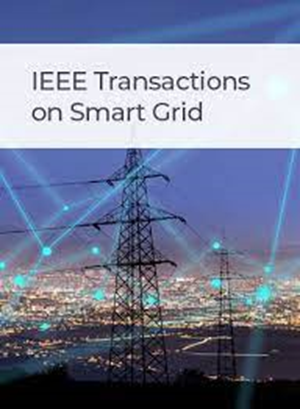基于异步多代理强化学习的双层非合作博弈论需求响应框架
IF 8.6
1区 工程技术
Q1 ENGINEERING, ELECTRICAL & ELECTRONIC
引用次数: 0
摘要
需求响应(DR)是为解决配电网络中分布式能源资源(DER)和储能系统的不确定性而提出的。然而,目前的研究忽视了需求响应参与者的时间关系和非合作关系。本文提出了一种新颖的双层非合作 Stackelberg-Nash 动态博弈理论框架,专门用于解决传统需求响应框架中忽视消费者利益和参与者行动时间关系的问题。在这一创新框架内,提出了一种异步多代理强化学习算法,并将其命名为 Stackelberg-Nash 多代理近端策略优化算法(SN-MAPPO)。SN-MAPPO 允许公用事业公司(UC)和消费者在提议的框架内最大化其效用,最终使 UC 和消费者的策略趋同于 Stackelberg-Nash 均衡。为了评估所提出的框架的有效性,我们使用真实数据进行了模拟,其中涉及一个统一电力公司和八个电力消费者。仿真结果证实,建议的需求响应机制在保障消费者利益的同时,促进了分布式能源资源的整合,并有效缓解了负荷波动。本文章由计算机程序翻译,如有差异,请以英文原文为准。
Asynchronous Multi-Agent Reinforcement Learning-Based Framework for Bi-Level Noncooperative Game-Theoretic Demand Response
Demand response (DR) is proposed to address the uncertainty of distributed energy resources (DER) and energy storage systems in distribution networks. However, current research neglects the temporal relationships and the noncooperative relationship of demand response participants. A novel bi-level non-cooperative Stackelberg-Nash dynamic game-theoretic framework is proposed in this paper, specifically designed to address the issue of overlooking consumers’ interests and temporal relationships of participant actions in traditional demand response frameworks. Within this innovative framework, an asynchronous multi-agent reinforcement learning algorithm is proposed and named as Stackelberg-Nash multi-agent proximal policy optimization algorithm (SN-MAPPO). SN-MAPPO allows utility company (UC) and consumers to maximize their utilities within the proposed framework, ultimately leading to the convergence of UC and consumers’ strategies to Stackelberg-Nash equilibrium. To evaluate the effectiveness of the proposed framework, simulations are conducted using authentic data, involving one UC and eight power consumers. Simulation results confirm that the proposed demand response mechanism, while safeguarding consumers’ benefits, fosters the integration of distributed energy resource and effectively mitigates load fluctuations.
求助全文
通过发布文献求助,成功后即可免费获取论文全文。
去求助
来源期刊

IEEE Transactions on Smart Grid
ENGINEERING, ELECTRICAL & ELECTRONIC-
CiteScore
22.10
自引率
9.40%
发文量
526
审稿时长
6 months
期刊介绍:
The IEEE Transactions on Smart Grid is a multidisciplinary journal that focuses on research and development in the field of smart grid technology. It covers various aspects of the smart grid, including energy networks, prosumers (consumers who also produce energy), electric transportation, distributed energy resources, and communications. The journal also addresses the integration of microgrids and active distribution networks with transmission systems. It publishes original research on smart grid theories and principles, including technologies and systems for demand response, Advance Metering Infrastructure, cyber-physical systems, multi-energy systems, transactive energy, data analytics, and electric vehicle integration. Additionally, the journal considers surveys of existing work on the smart grid that propose new perspectives on the history and future of intelligent and active grids.
 求助内容:
求助内容: 应助结果提醒方式:
应助结果提醒方式:


